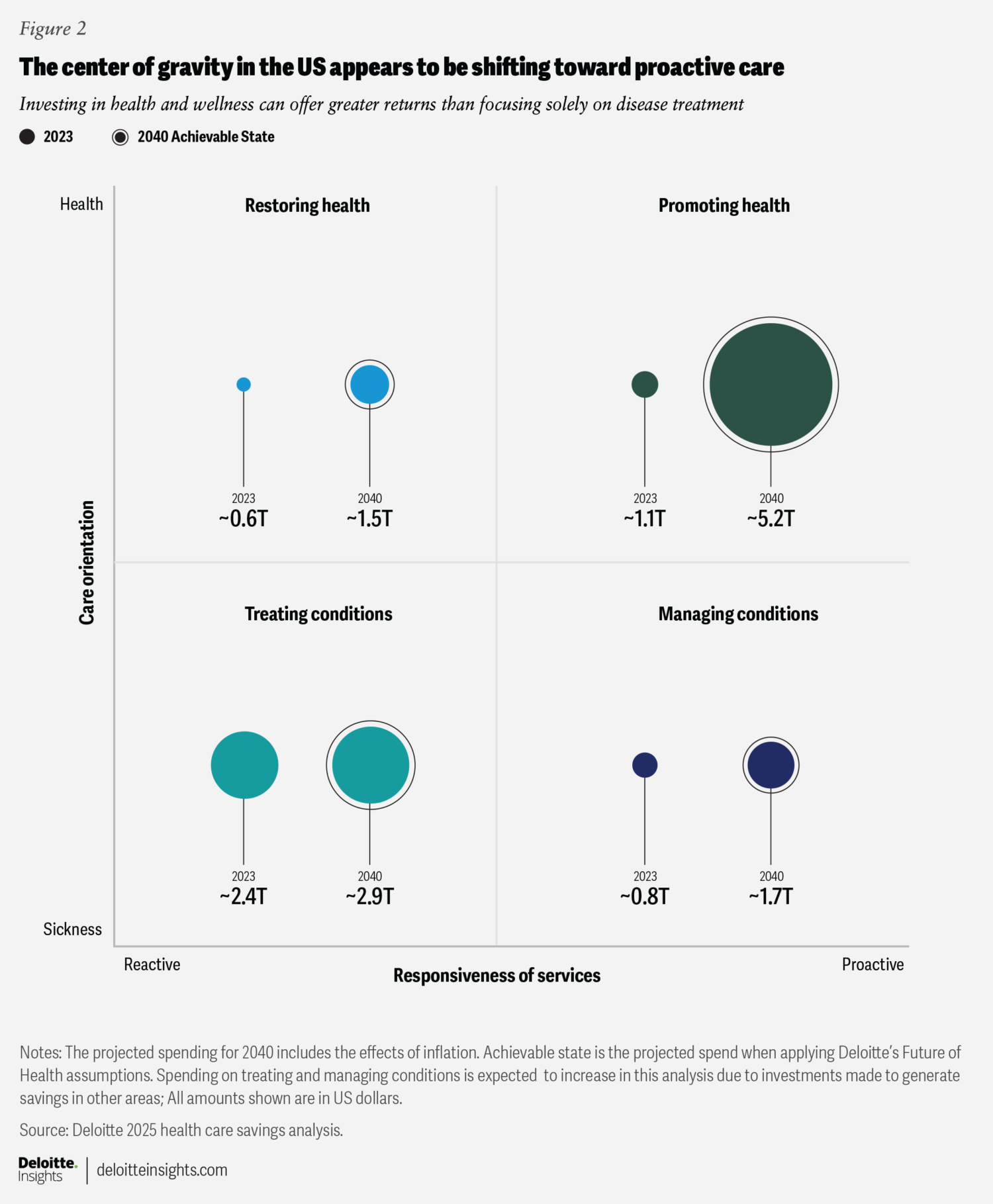
What You Should Know:
A new Deloitte report, “Safeguarding Medicare’s future: Proactive care could unlock more than $500B in annual savings,” finds that strategic investments in disease prevention, early detection, and other proactive measures could save the U.S. healthcare system up to $2.2 trillion annually by 2040. These investments could also help save Medicare more than $500 billion a year on medical and prescription drug claims and strengthen the program’s long-term financial outlook.
The report recommends stakeholders should consider urgent, coordinated action to align financial incentives that prioritize prevention and proactive care. According to the analysis, a shift from reactive to proactive care not only offers significant economic benefits but also has the potential to improve the health and well-being of individuals while helping to protect Medicare’s future in its current form.
The Current State of Reactive Care
Today, the U.S. healthcare system operates in a “break-fix” cycle, waiting until people get sick before investing in their care. Deloitte’s analysis found that over 62% of total healthcare expenditures are for reactive care—the treatment of illnesses, injuries, or deteriorating health. This accounts for approximately $3 trillion in annual spending.
In contrast, only 22% of total health spending is on promoting health care, such as preventive services and wellness activities. This imbalance drives higher long-term costs and poorer health outcomes for individuals. Without change, healthcare spending is projected to increase by an average of 5.8% annually, growing from 17.6% of the GDP to 20.3% by 2033.
The Power of Prevention
The report highlights that proactive health measures can deliver a clear return on investment. The greatest opportunities for savings, according to the analysis, lie in preventing and managing chronic conditions such as diabetes, heart disease, and cancer. These three conditions alone account for a significant share of Medicare spending. Deloitte estimates that targeted prevention and management programs for these conditions could reduce annual expenditures in the U.S. by over $700 billion.
Prevention and early detection do more than just postpone health care expenses; they can reduce total lifetime costs and improve quality of life. For example, proactive measures for managing heart disease can delay its onset by nearly seven years and shorten the period of severe illness from almost five years to a little more than one.
Who Benefits from Proactive Care?
According to the report, every stakeholder could benefit from greater investments in disease prevention and proactive measures.
- Medicare could see reduced long-term spending and strengthened solvency.
- Employers could benefit from a healthier and more productive workforce.
- Individuals could experience lower overall healthcare costs and an improved quality of life.
Achieving this transformation will require coordinated action from the government, employers, health plans, and health systems. The report suggests that government agencies can support this movement by incentivizing commercial health plans and Medicare to invest more in disease prevention, such as driving innovation through new payment models and reimbursement for care.
For more information about the Deloitte report, click here.
